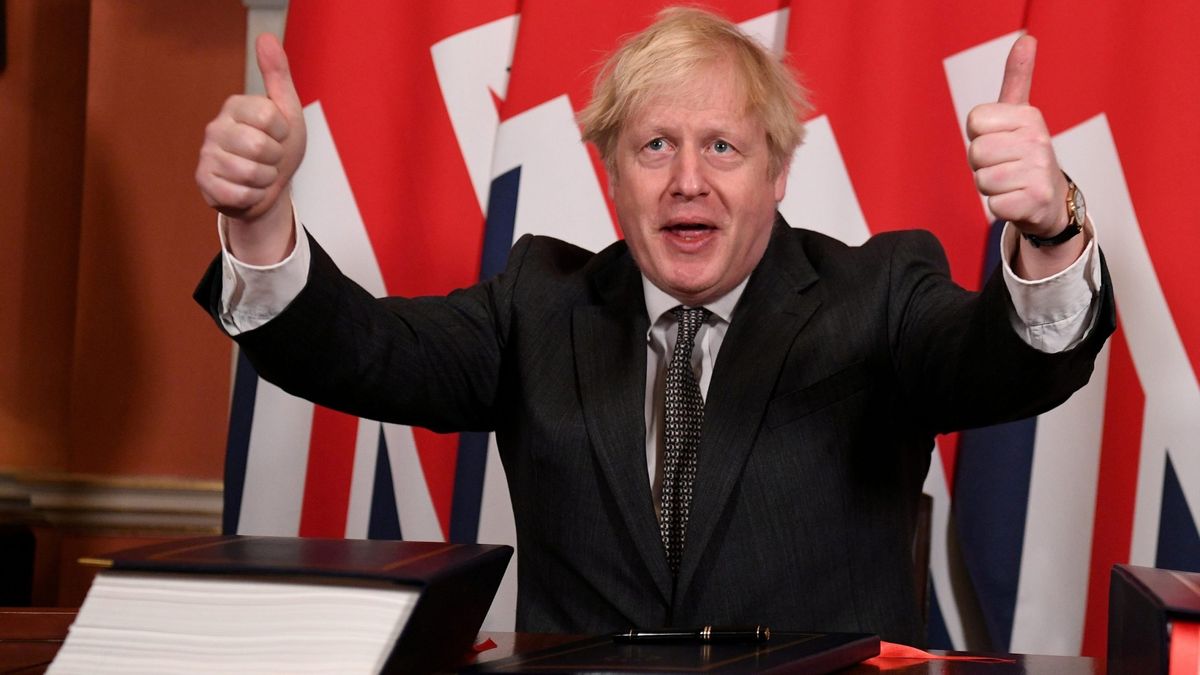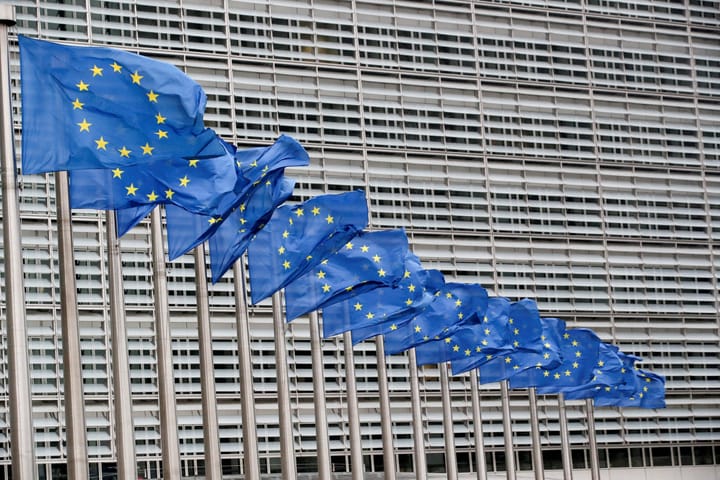The winners and losers of the UK-EU trade deal, explained

A few minutes every morning is all you need.
Stay up to date on the world's Headlines and Human Stories. It's fun, it's factual, it's fluff-free.
The deal came at the last possible moment after the deadline was extended numerous times to allow the two sides to come to an agreement.
After years of negotiations, the United Kingdom and European Union finally reached an agreement that will lay out their relationship now that the UK has officially left the EU.
The negotiations, which concluded on Christmas Eve, resulted in the UK leaving the European single market and customs union at the end of 2020 but will see it continue tariff-free trade and other arrangements with the EU member states going forward.
The deal came at the last possible moment after the deadline was extended numerous times to allow the two sides to come to an agreement.
While the trade deal meant that all parties would avoid the ominous outcome of a “No Deal” Brexit, both the UK and the EU put their own spin on the agreement in an effort to lessen the concessions each made and emphasize what they gained from the new arrangement.
The thousands of pages contained in the new trade deal between the UK and EU lays out which side will leave more than four years of Brexit negotiations the “winner” and which the “loser.”
The UK
With an agreement finally reached on Christmas Eve, the trade deal between the UK and the EU represented the end of yearslong negotiations between the two sides following the UK’s vote to leave the EU in 2016.
With little time to subject the deal to significant scrutiny, it was rushed to the British Parliament, where, by a vote of 521 to 73, it secured the approval of a majority of the members of Parliament (MPs), including the majority of left-wing Labour MPs and the royal assent of the Queen.
The British Prime Minister, Boris Johnson, claimed the deal meant Britain had “taken back control of our laws and our destiny.” The call to “take back control” of laws, borders and more was a prominent campaign message for the victorious Leave side during the 2016 referendum on EU membership.
For the UK, the trade deal had numerous pros and cons.
Johnson has claimed that the £668 billion (US$912 billion) agreement would “protect jobs across this country” and “enable UK goods to be sold without tariffs, without quotas in the EU market.”
While it is true that UK goods will escape tariffs and quotas in trade with the EU, UK trade will nonetheless face safety and customs checks at border points that did not previously exist.
This means UK businesses will face more bureaucracy and paperwork when trading with EU member nations than before, potentially causing disruptions while businesses adapt to the new arrangement.
The UK financial services industry will no longer have an automatic right of access to EU markets but will instead have to navigate regulations for each individual country, as opposed to standardized EU-wide rules.
Travel will also change, with British travelers now requiring visas for stays longer than 90 days in the EU, with British nationals also losing access to European Health Insurance Cards (EHIC). The UK will also withdraw from the Erasmus exchange program, which allows university students from EU countries to study in other countries across the continent.
Fishing had proved to be a sticking point in negotiations right until the final agreement was reached.
But, in a win for the UK, over a period of five and a half years the UK fishing industry will gradually build up a greater share of the catch from UK waters as opposed to its EU competitors.
However, the UK failed to secure as great a reduction in the share of fish caught by EU member nations in UK waters as it had wanted, instead having to settle for a longer transition period (five and a half years instead of three) before it has full control over its waters.
Perhaps central to the cries of “take back control,” the European Court of Justice, the highest court in the EU, will no longer have any authority in the UK and any disputes between the UK and EU will be referred to an independent tribunal.
The EU
For European leaders, the agreement of a trade deal with the UK represented the end of a yearslong saga and the opening up of a new chapter in the future of the EU.
Ursula von der Leyen, the European Commission president who delivered the EU’s reaction to the deal, claimed that although negotiations were a “long and winding road,” the EU “have got a good deal to show for it.”
Nevertheless, although von der Leyen stated that “parting is such sweet sorrow, it was “time to leave Brexit behind. Our future is made in Europe.”
Perhaps the greatest benefit to come out of the agreement for the EU is that, in the words of the EU’s chief negotiator Michel Barnier, “the clock is no longer ticking” and the EU can move on from Brexit.
Indeed, the EU has already begun to move on and is set to finalize an EU-China investment agreement that has been negotiated for more than seven years. The deal will open up some of China’s closely-protected industries to EU companies, giving them – in a deal that the UK will now be excluded from – greater access to the Chinese market.
Winners and losers
For both parties, the news of an agreement has no doubt come as a relief, particularly in light of fears that no agreement would be reached, resulting in a “No Deal” Brexit.
It is not immediately clear, though, which side has benefited the most from the deal.
The UK has secured greater access for fishing in its own waters, an end to the role of the European Court of Justice in the UK and tariff and quota free trade with the EU.
But it has also relinquished its involvement in one of the world’s largest trading blocs, which has seen the UK scramble to secure trade agreements with nations around the world – agreements that have already been made for EU members.
The vast majority of these agreements are a mere copy of EU-era trade agreements, aside from the UK-Japan trade deal, which will only increase the UK’s gross domestic product (GDP) by 0.07%, far less than the amount that could be lost as a result of Brexit.
For the EU, although the troublesome issue of Brexit is largely resolved, it will face similar disruptions as the UK will once the complexities of the new relationship are borne out.
Although it is difficult at this time to evaluate the true winners and losers of this deal, from now onward both the UK and EU will enter a new phase of their decadeslong relationship.
Only time will tell if the future of the relationship will be a successful one.
Have a tip or story? Get in touch with our reporters at tips@themilsource.com




Comments ()